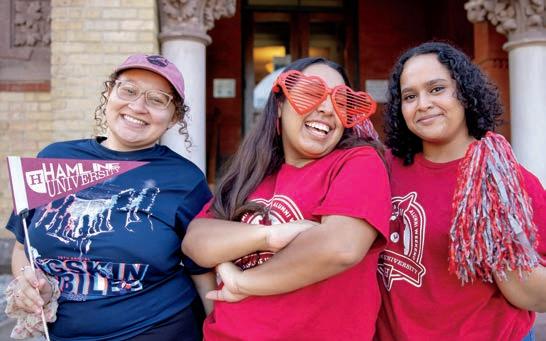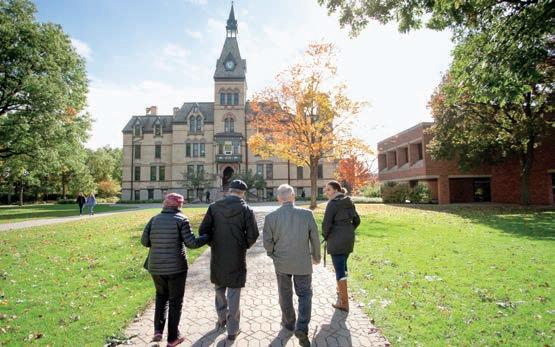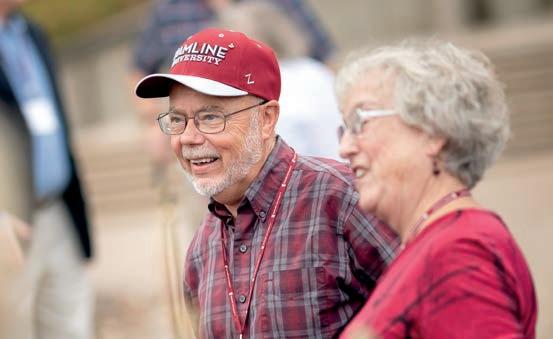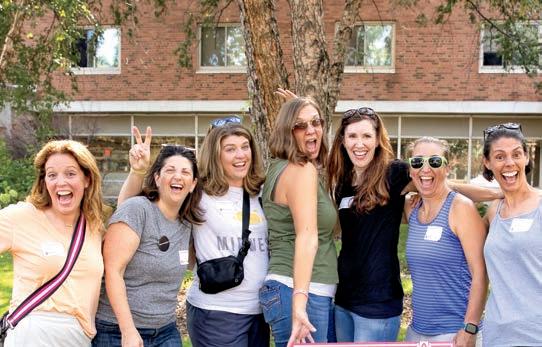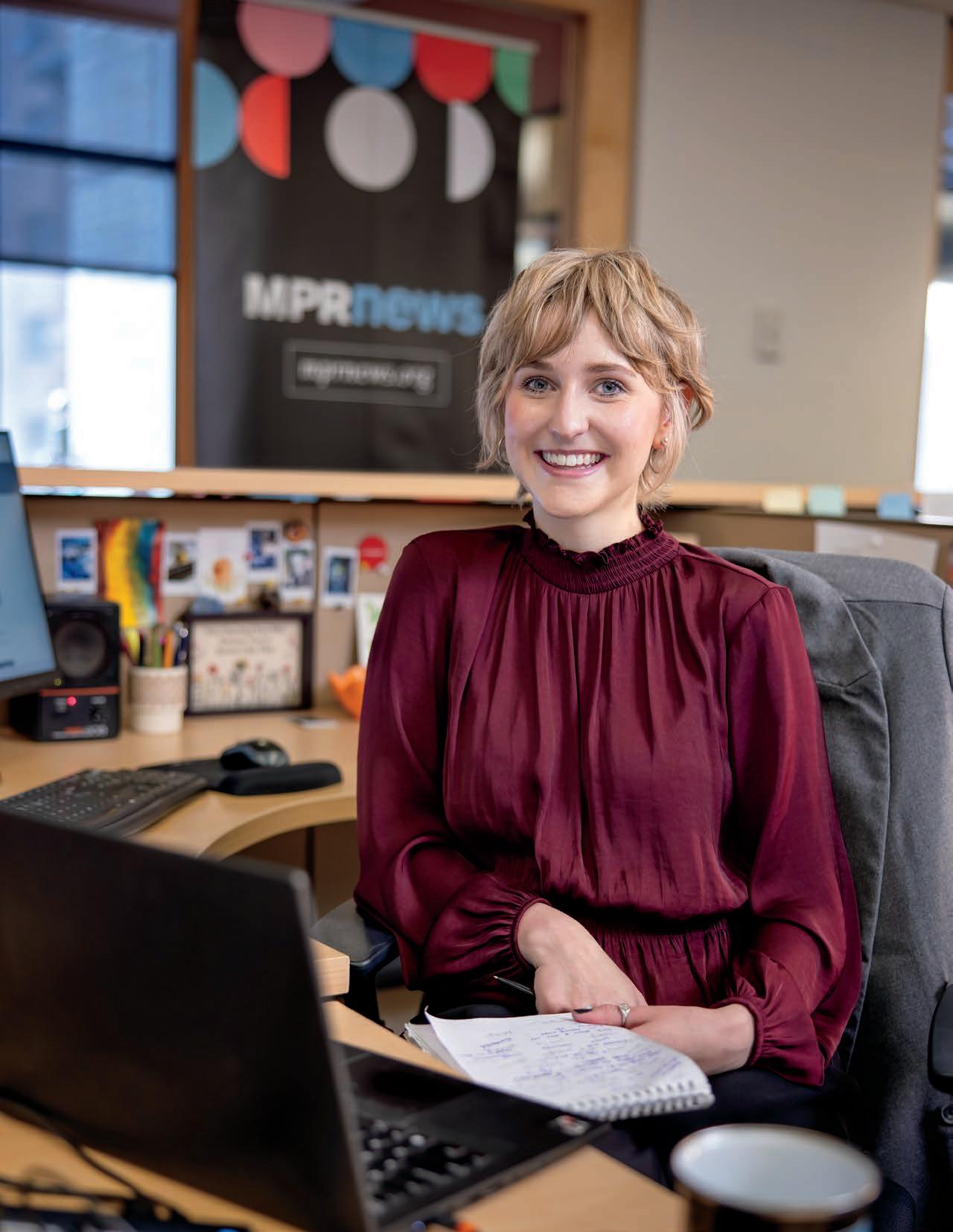

News Pipers

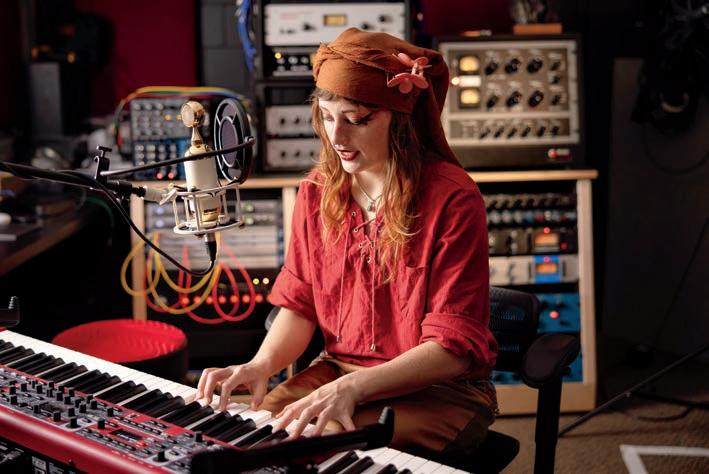
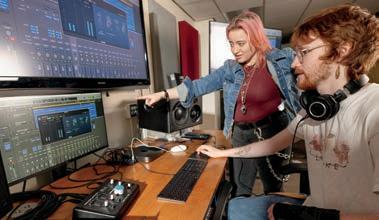
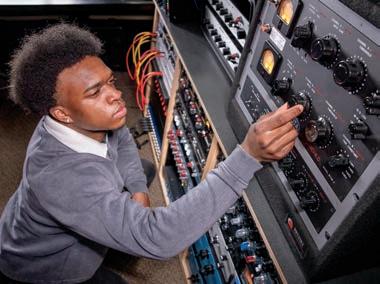
Major News Music Production Begins Fall 2025
Where creative passion turns into professional possibility — Hamline’s new major in music production is designed to prepare students for today’s digital music economy.
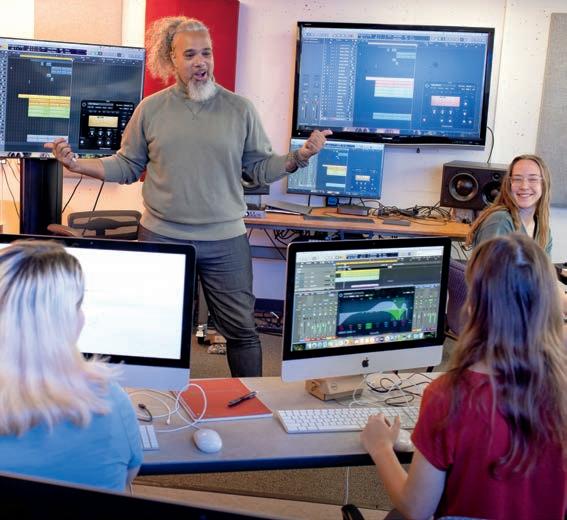
magazine@hamline.e du
Change of address requests: Institutional Advancement giving@hamline.edu
Hamline University MC-1917 1536 Hewitt Avenue Saint Paul, MN 55104
Hamline University does not discriminate on the basis of race, color, national origin, ancestry, sex, disability, religion, age, sexual orientation, or veteran status in its education or employment programs or activities.
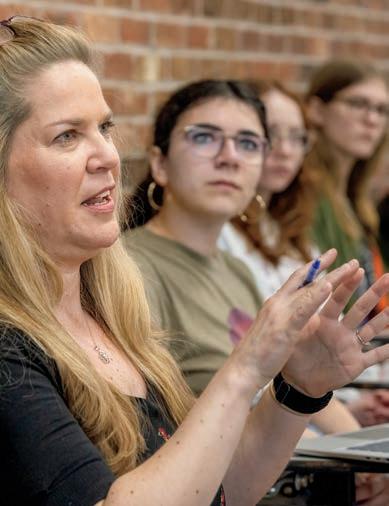
Meet the newest members of our university leadership team.
Discover how three HU football players became super fans.
Experience our faculty’s thought leadership, 100% tuition-free
Meet three alumni who are making their marks as journalists
Faculty are integrating highimpact teaching practices to deepen student learning.
Alumni Relations fosters connections between past and present Pipers.
Learn how a historic capital campaign is fueling Hamline’s future
Check it out and update your alumni profile today.
Celebrating culture is a tradition in this
A bequest from Joanne Peterson ’52 supports future Pipers
Students, families, and faculty were bursting with Piper pride on May 17.
Mark your calendar now for the best week of the year.
XENGSUL YANGWAUE ’98
MEMBER OF HAMLINE’S HMONG STUDENT ASSOCIATION
COVER: Anika Besst ’23 reports on higher education and the arts for MPR News. (photo by CT Ryan Photography) FACING PAGE: Hamline’s music production studio. (photo by CT Ryan Photography) ABOVE : Alina Oxendine, PhD, of the Political Science department, leads a classroom discussion (photo by Ben Garvin)
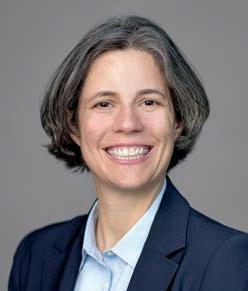
President’s Note
Everywhere I turn at Hamline, I see the impact of alumni and friends who believe in the power of education to change lives.
You built a university with a proud history — and an even brighter future. With gratitude for the stewardship of my predecessor, Acting/Interi m President Kathleen Murray, I’m honored to join you at this moment of momentum and possibility. Together, we will continue to lead with purpose, invest in what matters most, and ensure that Hamline remains a place where students thrive and build their bright futures. Thank you for your commitment, passion, and partnership. I can’t wait to see all that we will accomplish — together.
INAUGURATION EVENTS FOR PRESIDENT
HOSTETTER WILL TAKE PLACE ON THURSDAY, NOV. 6, 2025.
Announcements
A New Era of Leadership
The Board of Trustees has appointed new leaders in critical roles to guide Hamline University through the ever-changing higher education landscape.
DR. HOSTETTER BECAME Hamline’s 22nd president on July 1, 2025. She most recently served for seven years as president and eight years as a founding dean of the Relay Graduate School of Education (GSE), which is dedicated to preparing the next generation of teachers and school leaders. Relay GSE is a fully accredited nonprofit institution that serves its students nationwide from headquarters in New York City. Under Dr. Hostetter’s leadership, Relay GSE significantly increased the percentage of its students who are people of color, and also increased students’ satisfaction and sense of belonging.
Dr. Hostetter grew up in the Twin Cities and is a graduate of St. Paul Academy. She holds a bachelor’s degree in English language and literature from Harvard University, a master’s degree in education from the Harvard School of Education, and a doctoral degree in curriculum and teaching from Teacher’s College, Columbia University.
DR. KISTING BECA ME Hamline’s chief academic officer on July 1, 2025. He will also teach courses as a faculty member in the English department
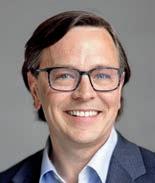
Dr. Kisting comes to us most recently from the University of Wisconsin – River Falls, where he was a professor of English and dean of the College of Liberal Arts and Sciences. Prior to his time in Wisconsin, Dr. Kisting spent 16 years at Augusta University in Augusta, Georgia, where he served in several academic leadership positions and as a professor of English.
Dr. Kisting holds a bachelor’s degree in English from Marquette University and a PhD in English language and literature from the University of Iowa.
NEW VICE PRESIDENTS have joined Hamline to deepen our engagement with alumni and friends, grow our enrollment, and maintain our financial strength in the years to come.
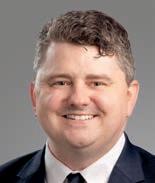
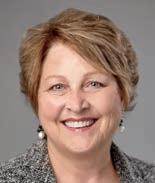
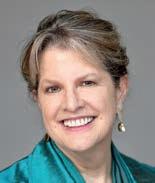

USE THE QR CODE TO LEARN MORE ABOUT THEM
TREVOR BLOCK VP, Institutional Advancemen t
MARY JENSEN, E dD VP, Enrollment Manageme nt
WESLEY KISTING, PhD Provost and Dean of the Faculty
MAYME HOSTETTER, E dD Preside nt
SUSAN KERRY, MBA VP, Finance and Administration/Chie f Financial Officer
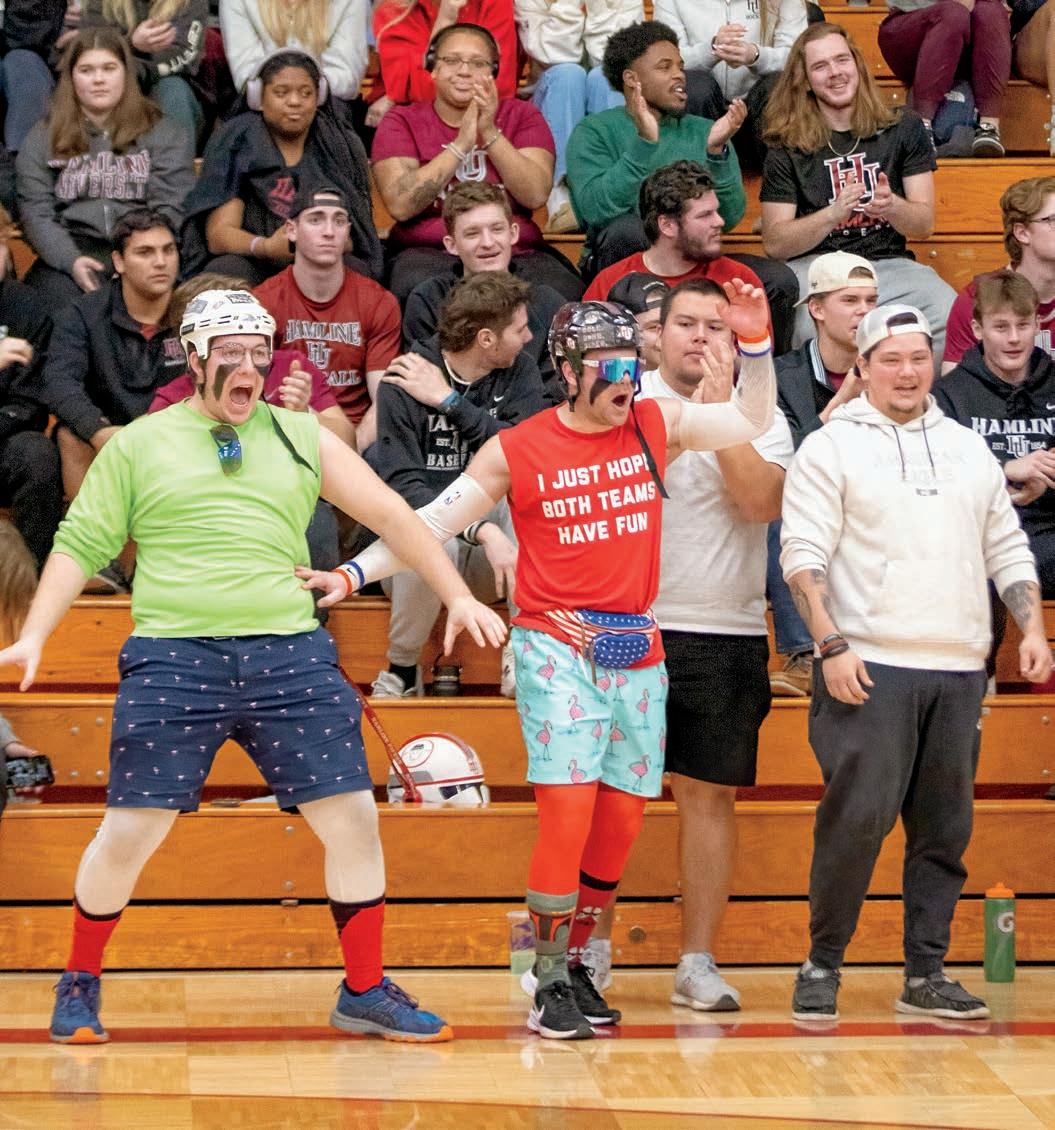
Fan–demonium!
ATHLETES KNOW THE off-season is an essential time for bodies and minds to recover from the demands of competition and training. In fact, it’s crucial for long-term athletic performance and overall well-being.
For three Hamline footballers — safety Charlie VanGuilder ’24, placekicker Durham Welch ’25 and
offensive lineman Michael Cromer ’26 — “athletic performance” came to mean something quite different in the off-season following their 2023 gridiron campaign.
They blitzed Hamline’s 2023–2024 winter sports contests with a high-energy mix of school spirit and comedy to rally the fans and show support for fellow HU athletes.
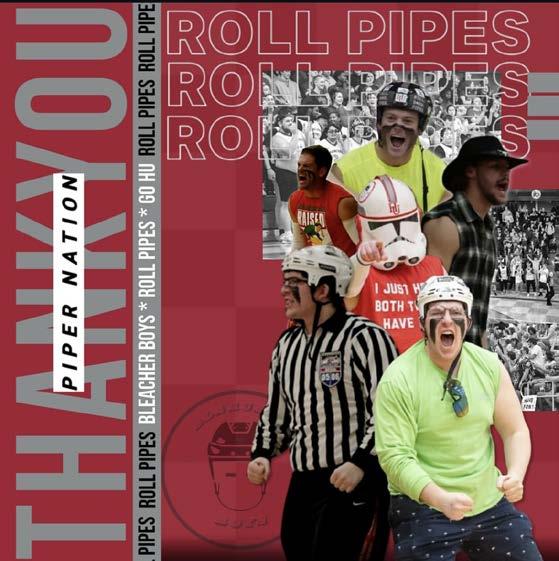
“We just decided to go to a few games and get rowdy,” explained Welch. “But you have no idea where something like this will take you.”
Inspired by the “Green Men” — Vancouver Canucks super fans whose can’t-un-see-them green bodysuits and shenanigans near the opposing NHL team’s penalty box keep fans (and TV cameras) entertained — the Piper teammates started showing up at
HU basketball and hockey games as “The Bleacher Boys.” They quickly developed a following for their silly costumes and rink- and court-side antics.
“People started noticing us,” Cromer added. “Once they did, we got a ton of support from everyone — players, coaches, parents, fans.”
Hamline Athletic Director Alex Focke is among those who appreciate their positivity
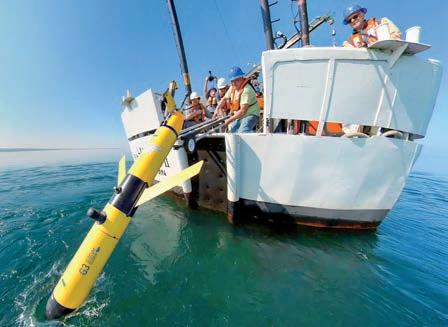
Researchers study how climate change affects Lake Superior.
LEF T: Follow our Hamline superfans on Instagram @bleacher_boys
PREVIOUS PAGE: Michael Cromer ’26 and Charlie VanGuilder ’24, made school spirit fun — and slightly absurd — as The Bleacher Boys.
and good sportsmanship. “The Bleacher Boys have made a tremendous impact,” he said. “I’m filled with pride as I see the way our community supports our student-athletes. The Bleacher Boys have ignited a fun culture of cheering on our teams.”
Women’s basketball coach Josh Hersch agreed. “There’s nothing better than seeing our student-athletes support one another. The Bleacher Boys have helped create a very inclusive environment on campus.”
Sadly, The Bleacher Boys are down two members going into the 2025-2026 school year, as Welch and VanGuilder have graduated. Cromer is looking to recruit some new Bleacher Boys, and it won’t be easy.
“PIPER HOME GAMES HAVE BEEN ABSOLUTELY ELECTRIC.”
HAMLIN E STUDE NT NEWSPAPE R THE ORACLE , FEB. 2024.
“It’s going to be hard to find the right person,” he said. “You have to bring a high energy level every night and there are a lot of games. We did a few basketball games in a row last winter and it was really tiring!”
Whomever Cromer finds to join The Bleacher Boys, Welch noted one factor they’ll need to consider: “We spent a lot of time together,” he said. “Sort of like the Three Stooges.”
Community Catch a Leo Lecture
WRITTEN BY STAFF
IN 2017, HAMLIN E UNIVERSITY launched the Leo Lectures to showcase the expertise of our faculty, alumni, and students on a wide range of timely topics. Named in honor of our founder, Methodist bishop Leonides Lent Hamline , the series supports lifelong learning for all members of the Hamline community. Originally, Leo Lectures were in-person events held on campus during Homecoming and Alumni Week or during lunch hours. Out of
INSTAGRAM POST COURTESY OF THE BLEACHER BOYS; LEO LECTURE
PHOTO BY JOHN SHEPARD
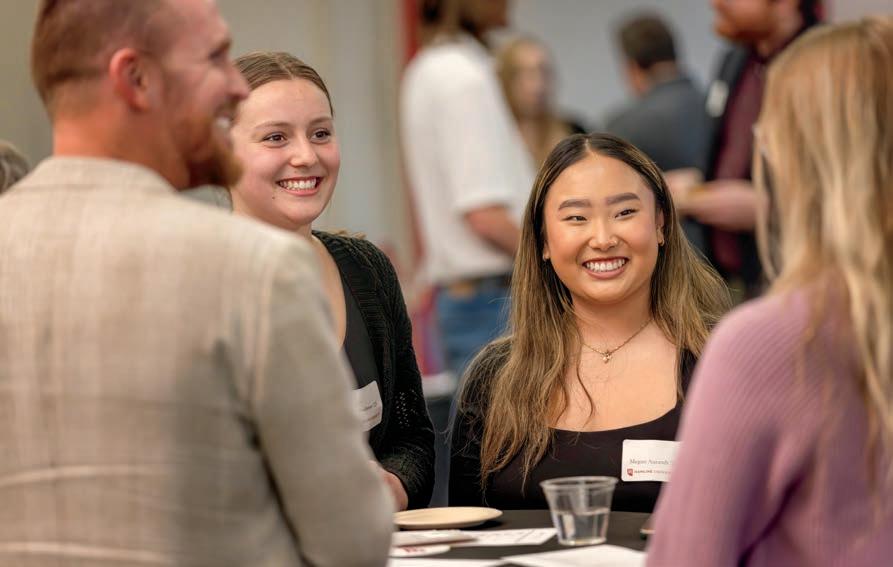
The Power of Connection Networking
FROM LEFT TO RIGHT:
Alumnus Rannon Arch ’14 with students Olivia Boehmer, Megan Aurandt, and Gabrielle Thoreson.
necessity, the lectures became webcast s during the COVID-19 pandemic and remain so by popular demand.
“The virtual format allows alumni and supporters far and wide to experience the university’s thought leadership and expertise of fellow alumni,” said Molly Glewwe MFA ’09, director of alumni relations. Have a question or an idea for a future Leo Lecture? Send it to alum@hamline.e du
HAMLINE ALUMNI AND students are building bridges for the future through events that foster mentorship, connection, and professional growth. At the Piper-toPiper Student-Athlete and Alumni Luncheon and Rise: Student/Alumni Networking Reception, students engaged with alumni across generations, exchanging stories, advice, and career insights.
In February, alumni athletes Becky Culp Springman ’13, Ben Cooper ’15, and Patt y Stotzheim ’91 JD ’06 returned
to campus to share how lessons from Hamline athletics — resilience, teamwork, and perseverance — continue to shape their lives. Events like these reinforce the enduring strength of the Hamline network
The Rise: Student/Alumni Networking Reception welcomed alumni from all disciplines for career-focused discussions, echoing the spirit of Hamline’s long-standing Etiquette Dinner tradition, where alumni help students build confidence in professional
Find these recent lectures — and more — on YouTube
April 10 — Lake Superior
The world’s largest lake is also one of its fastest warming, due to the impact of climate change. Hamline’s Center for Global Environmental Education is using a mix of media strategies to inform diverse regional audiences about this fact and the far-reaching implications of global warming.
May 9 — AI Among Us
Artificial intelligence is no longer a futuristic concept — it’s shaping how we communicate, learn, work, and make decisions. This lecture explored the role of higher education in preparing students not only to use AI, but to understand, question, and shape its role in society.
settings. Over hors d’oeuvres, alumni shared mentorship and career advice, reinforcing the value of the Hamline network. Students learned the basics of networking and had an opportunity to practice new skills with alumni volunteers.
Acting/Interim President Kathleen Murray noted, “These connections are invaluable,” while the Alumni Relations Office and Alumni Board of Directors emphasized the transformative power of alumni-student engagement. Whether through panels, small-group conversations, or informal mentoring, Pipers are supporting Pipers — on campus and beyond. Together, alumni shape a strong future for Hamline. To learn more about how you can support current Hamline students, contact the Alumni Relations Office at alum@hamline.edu
WRITTEN BY STAFF
PHOTO BY BEN GARVIN
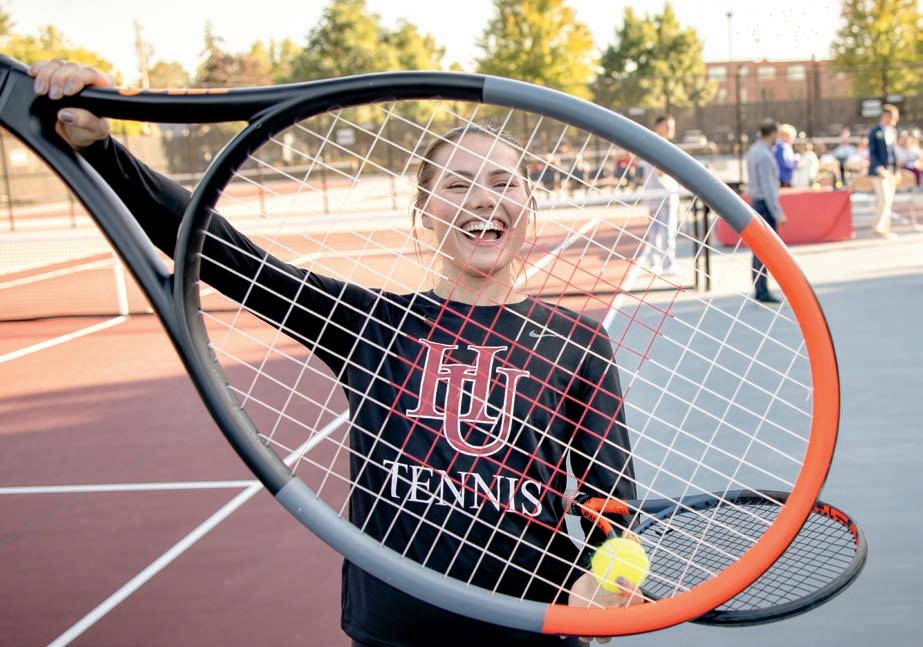
Philanthropy
Hamline Takes the Lead
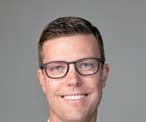
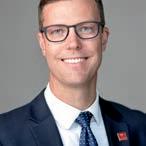
A historic campaign powers our future.
WRITTEN BY STAFF | PHOTO BY CT RYAN PHOTOGRAPHY
HAMLINE UNIVERSITY OPENED 2024 with powerful momentum, having just concluded Take the Lead, the most successful fundraising initiative in our history. The campaign surpassed its $110 million goal by more than 10%, bringing in $122.3 million in gifts and commitments — an unprecedented achievement fueled by alumni, friends, faculty, and community partners.
Across campus, the results of donor generosity are already taking shape — none more visibly than in athletics, where enhanced facilities are enriching the studentathlete experience and bolstering
Hamline’s competitive edge. With one of the largest student-athlete populations in school history, these upgrades are a critical part of Hamline’s competitive positioning. Among the notable projects was the renovation of the Holt Courts at the Jeff Green & Family Tennis Center, revitalized through a $500,000 campaign investment. The courts — named for Hall of Famer Darrel Holt ’36 — were restored thanks to the generous support of many donors, with lead gifts from Ann Holt and Jeff Green LDH (hon.) ’23, a Hamline trustee, founder of U.S. Merchants, and former Piper tennis standout.
LEF T: Piper tennis player Cora Andersen showed off an oversized racket at the grand-opening celebration for renovated tennis facilities made possible by generous gifts to Hamline’s Take the Lead campaign.
“WE’RE THANKFUL FOR THE INCREDIBLE GENEROSIT Y OF ANN HOLT, AND JEFF GREEN AND HIS FAMILY. IT’S BEEN A JOY TO WATCH OUR PIPER TENNIS TEAMS COMPETING ON CAMPUS ON THEIR HOME COURTS.”
ALEX FOCKE ASSISTANT VICE PRESIDENT AND DIRECTOR OF ATHLETIC S
Spencer Jones ’97, head coach of men’s and women’s tennis, called the renovation a “gamechanger” for Hamline. “Our donors have created a top-tier space for practice and play, and helped position us to host events that elevate our profile.”
Beyond bricks and mortar, the campaign also fortified Hamline’s long-term financial health. Contributions to the endowment — including a board-designated unrestricted fund — will provide stability and flexibility for future priorities. Legacy giving played a key role, with 30% of funds coming from estate commitments. As a result, 96 new members were welcomed into Hamline’s Heritage Societ y — a testament to donors’ enduring belief in our mission.
The impact of the Take the Lea d campaign lives in every corner of campus: in renovated facilities, new scholarships, expanded programs, and the promise of continued innovation. More than a campaign, it was a collective affirmation of what Hamline stands for — and what our community can accomplish, together.
Homecoming Come Home to Hamline
A celebration of Piper pride
WRITTEN BY STAFF
PHOTO BY CT RYAN PHOTOGRAPHY
MARK YOUR CALENDARS for October 6–11, 2025, as Pipers past and present gather for one of Hamline’s most beloved traditions — Homecoming and Alumni Week . It’s more than a celebration — it’s a chance to reconnect, reflect, and revel in the spirit that makes Hamline a lifelong community.
The week begins for students with the Homecoming Kickoff Carnival and favorites like the Golden Egg Hunt and Sand Volleyball Tournament. The muchanticipated Lip-Sync Competition will feature the crowning of the Homecoming Royal Court.
Alumni are welcomed back to campus on Friday and Saturday. Featured events include the Golden Anniversary Lunch; milestone reunion gatherings for the Classes of 1975, 2000, 2015, and 2025; the Alumni Awards Brunch; and the Piper Alumni Association GetTogether during the Homecoming Football Game.
On Friday, Universit y Archivist Shandi Burrows will host a session with a fascinating look at the university’s rich history, told through a curated selection of artifacts. She will also discuss how you can preserve your own treasures
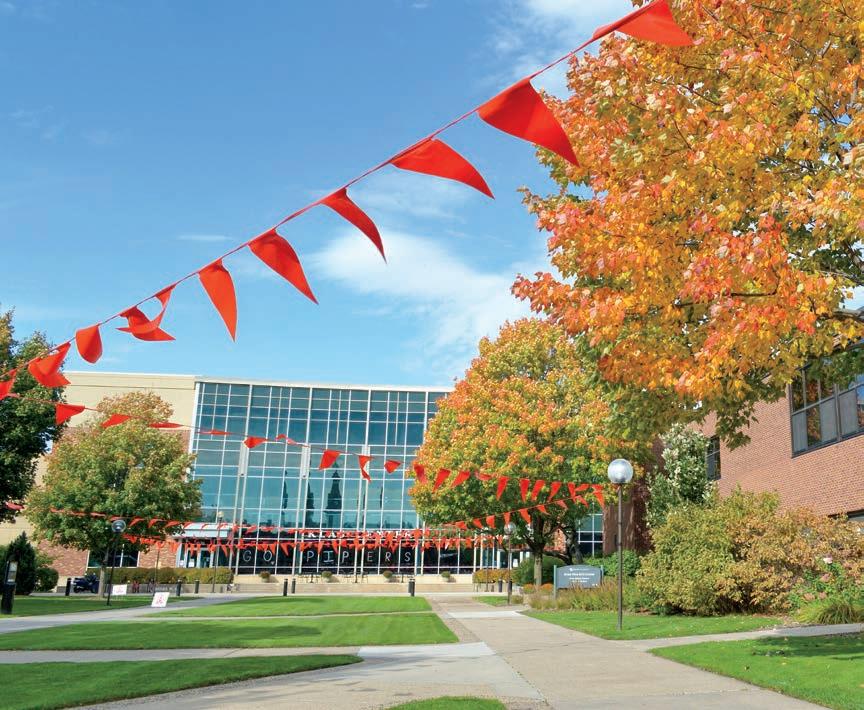
ABOVE : Klas Center and Drew Fine Arts provide a backdrop for fall colors and Piper-red pennants during Homecoming and Alumni Week.
The Homecoming Fall Fest on Saturday is a highlight of the weekend. Featuring games, Hamline swag, great food, and music, the Fall Fest serves as a meeting and gathering spot for alumni celebrating class and group reunions.
Evelyn Baker ’19, a member of the Alumni Board of Directors and the Homecoming Committee, says, “Homecoming and Alumni Week is an opportunity to reconnect with Hamline and see first-hand how the university community continues to thrive. Plus, it’s fun!”
We can’t wait to welcome you home! Registration is now open.
Register now for Homecoming and Alumni Week
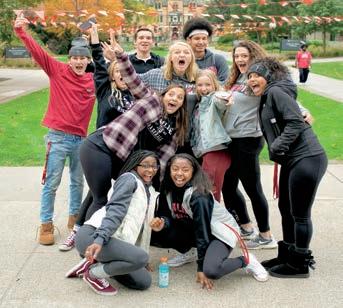
Connec t
A New Website for Previous Pipers
WRITTEN BY STAFF
THE ALUMNI RELATIONS team has launched a new and improved website to make connecting with the Hamline community after graduation easier and more engaging than ever.
At hamline.edu/alumni , you can:
• Create or update your alumni profile
• Reconnect with classmates
• Read the Class Note s
• Get news and updates about your alma mater
• Register for alumni event s
• Volunteer to support Hamline students
Questions? Send a note to alum@hamline.e du
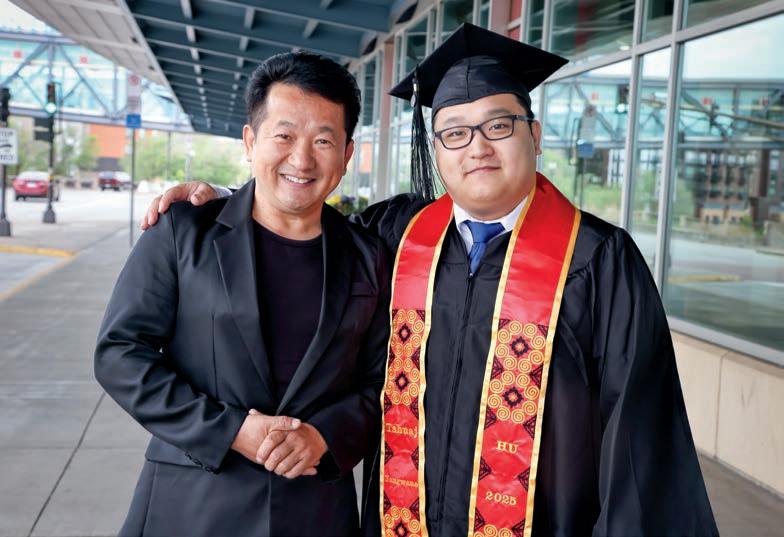
Legac y
Like Father, Like Son
Celebrating culture and identity is a tradition in the Yangwaue family.
WRITTEN
BY STAFF | PHOTO BY CT RYAN PHOTOGRAPHY
FOR FATHER-AND-SON PIPERS
Dr. Xengsul Yangwaue ’98 a nd Tshuaj Yangwaue ’25, representing and advocating for fellow students of Hmong heritage is a family tradition.
Perhaps it was natural for Xengsul, who majored in political science, to become a founding member and president of Hamline’s Hmong Student Association during his time on campus. It’s hard to guess how much was nature and how much was nurture, but Tshuaj — a biology major, of course — became treasurer of the same organization a generation later.
Xengsul recalls there were
just five members of the Hmong Student Association as the 1990s came to a close. “We got great support from the faculty and staff, but we struggled to bring the students together to form the organization. The idea was to support first-generation Hmong students in navigating the challenges of higher education.”
“Hmong culture used to be very minimal on campus,” Xengsul added. But now, 27 years later, the picture has changed.
“It’s a very positive atmosphere for the Hmong Student Association at Hamline today,” Tshuaj said. “We have
ABOVE : Xengsul and Tshuaj Yangwaue at commencement on May 17.
lots of participation in our events, including Hmong New Year, and we’re part of t he Multicultural Alliance We work with other groups in advocating for all BIPOC students. It’s more inclusive and welcoming when we work together.”
For his part, Xengsul is delighted by his son’s choice to follow in his footsteps. “As a father and first-generation U.S. citizen, I believe that one generation paves the way for the next to thrive,” he said. “It’s a blast to see your child grow up to attend the same school and take part in the association you co-founded.”
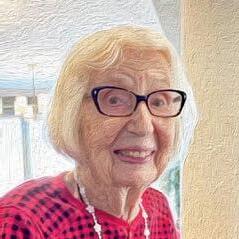
Philanthropy A Legacy of Opportunity
Joanne Peterson’s transformational gift to Hamline students | BY
MARY JENSEN
ONE GIFT. ENDLESS POSSIBILITIES . Joanne Peterson ’52 believed deeply in the power of education to transform lives. With a generous bequest of more than $1 million to Hamline University, she ensured that future generations of students would have access to the same life-changing opportunities she treasured during her time on campus.
Joanne earned her degree magna cum laude and went on to a meaningful career in
education. Her passion for learning extended far beyond the classroom. In 1959, she obtained her first passport and embarked on a lifelong journey of exploration — traveling throughout Europe and immersing herself in the cultures of England, France, Switzerland, and Norway. Later, she made her home in California, where she continued to cultivate her creativity as a skilled floral arranger and craftswoman, remembered by many for her warmth,
generosity, and radiant smile.
Before her passing on May 8, 2024, Joanne made careful plans to extend her legacy through philanthropic gifts to causes that reflected her values. Among them was Hamline University — a place she held dear for the role it played in shaping her life and worldview. Her wish was clear: that her gift be used where it could have the greatest impact. Working with her legal counsel, Joanne designated the funds to support student scholarships.
“This gift is truly transformational,” said Acting / Interim President Kathleen Murray. “Our students deserve a Hamline education, and Joanne’s investment helps ensure it remains accessible and affordable. She believed in the value of a strong liberal arts foundation and chose to pay it forward by helping others benefit from the same experience.”
At Hamline, scholarships are more than financial aid — they are a catalyst for discovery, growth, and community impact. They allow students to pursue their academic dreams, engage in research and studyaway programs, and build lives of leadership and service.
Joanne Peterson’s legacy is a powerful reminder that every scholarship tells a story — of belief in the next generation, of hope for the future, and of a community that comes together to make both possible.
Commencement 2025
CELEBRATION WAS THE word of the day as 375 undergraduate and 100 graduate students took part in commencement exercises on Saturday, May 17, at the Saint Paul RiverCentre.
Families, friends, faculty, and other well-wishers greeted the students at the processional, and then heard
remarks by Acting/Interi m President Kathleen Murray, U.S. Senator Tina Smith, undergraduate student speaker Anna Deibert ’25 of Spring Green, Wisc., and graduate student speaker Josiah Weist ’23 MAT ’25, a high school teacher in the Twin Cities. Congratulations to all our newly graduated Pipers! WRITTEN BY STAFF | PHOTO BY CT RYAN PHOTOGRAPHY
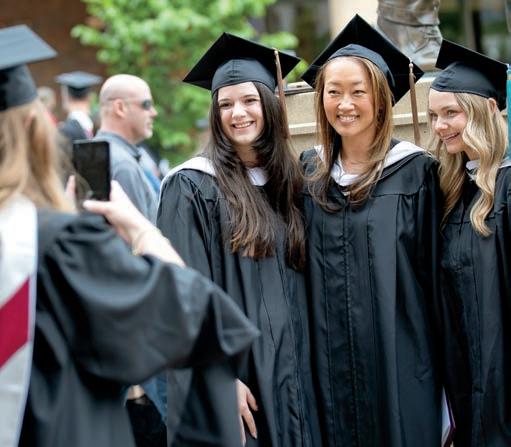
ABOVE : You can view all the photos from our 2025 commencement ceremonies (and purchase your favorites) at hamline.edu/commencement
News Pipers Tell Their Stories
WRITTEN BY STAFF
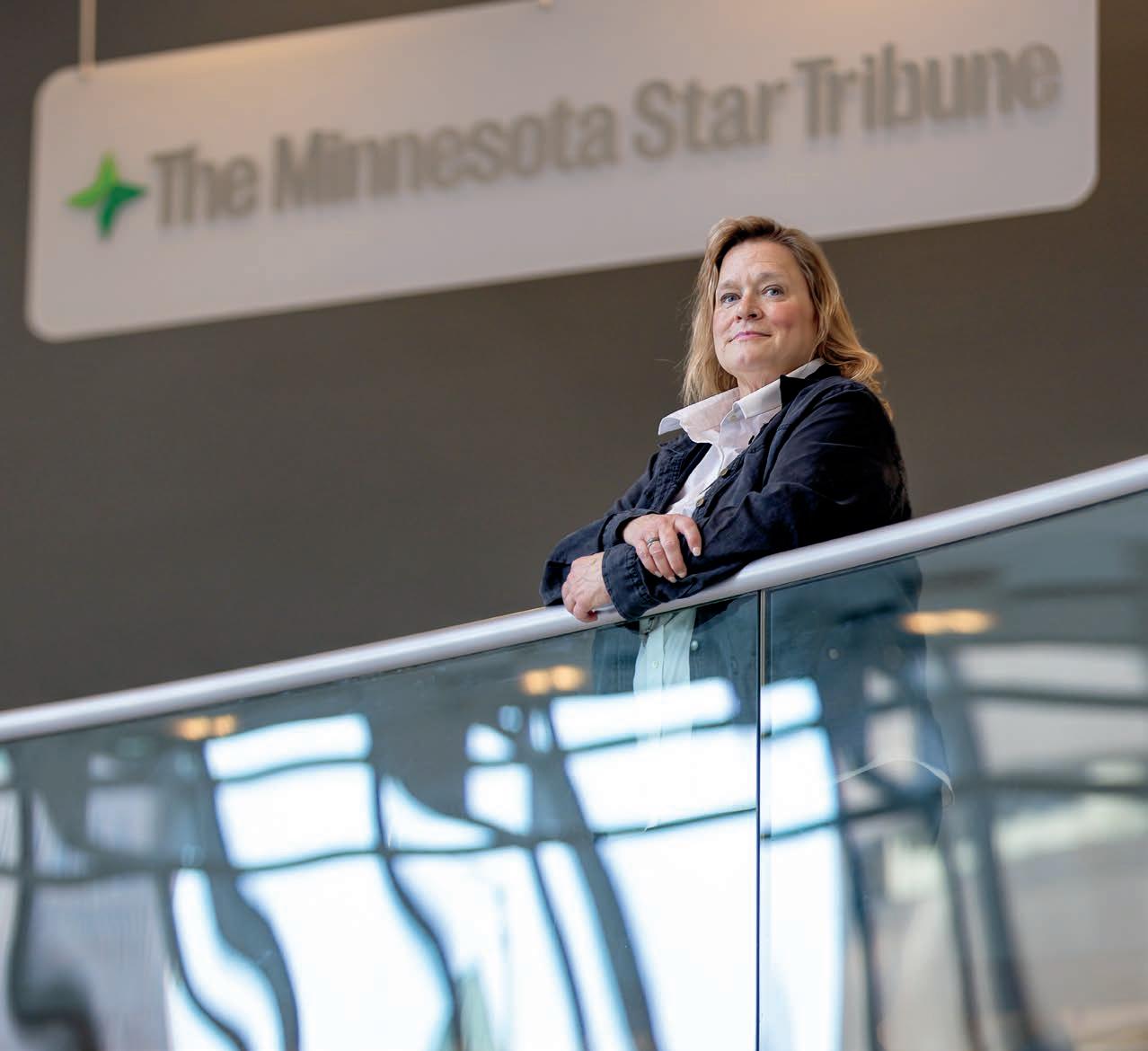
Aclassic narrative structure called the monomyth, or hero’s journey, sets a story’s central characters off on an adventure in which they face trials, gain knowledge, and return to their worlds transformed. Hamline grads might recognize these heroes from classic literature and film — think Odysseus, Beowulf, Frodo Baggins, Luke Skywalker — or from their own reflections in the mirror. In this issue, three Pipers who understand the power of a good story reflect on their own transformations from Hamline undergrads to working journalists.
ROCHELLE OLSON ’88
OPINION
COLUMNIST, MINNESOTA STAR TRIBUNE
“I could show you exactly the classroom and where I was sitting when it happened.”
Rochelle Olson recalls that when “it” happened, her Hamline University French professor, Tamara Root, PhD, was kind, but blunt. “She said my work was okay, but I could do better. She challenged me, told me to try harder, told me I was capable, and gave me confidence. No one had ever done that before.”
Olson’s time at Hamline was an essential stop in her journey from Kennedy High School in Bloomington, Minn., to the University of Kansas, where she earned a
master’s degree in journalism in 1992.
After graduation, Olson landed a job as a reporter with the Associated Press in Kansas City. She stayed with the wire service through the 1990s, moving to Topeka, Kansas; Charleston, West Virginia; and eventually back home to the Twin Cities.
In 2000, Olson’s journey continued when she left the AP to join what is now the Minnesota Star Tribune as its Minneapolis City Hall reporter. She stayed on that beat until 2022, when she started covering state government. Earlier this year, she accepted a transformational new assignment as the Star Tribune ’s opinion columnist for state politics.
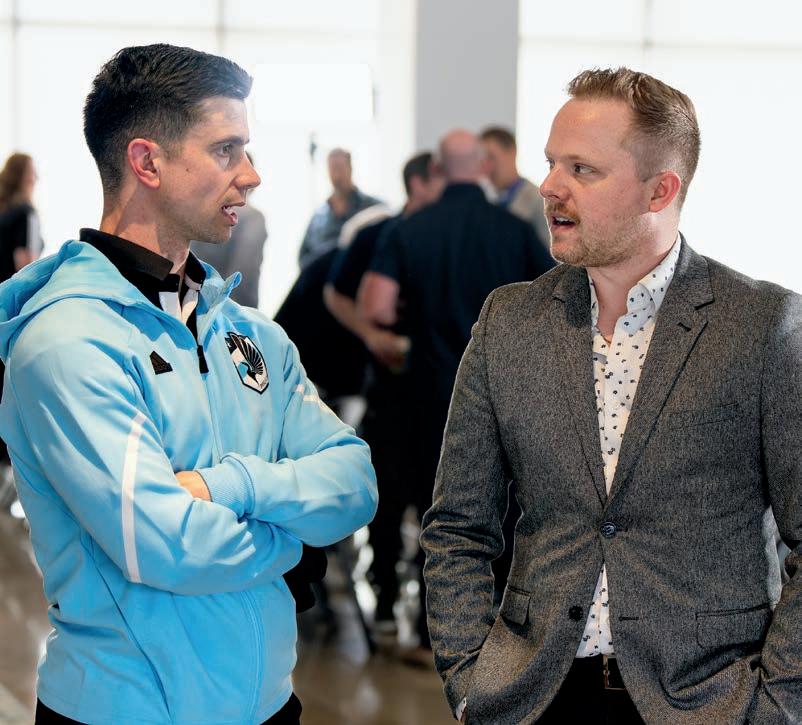
“After living a reporter’s commitment to objectivity for 30-plus years — of being quite careful of the things I said publicly and privately — it’s a little weird to suddenly be permitted to have opinions and express them in public,” she mused. “It’s also a lot more fun.”
The distance from Hamline to the Minnesota Capitol can be traveled in less than 10 minutes, but there’s no way to get there without curiosity, confidence and an open mind.
“I don’t know if I could have navigated a school larger than Hamline when I first started,” Olson said. “It was so accessible and enabled me to sample so many different subjects. I’m so glad to have a liberal arts education.”
JEFF RUETER ’16
SENIOR WRITER, THE ATHLETIC
In monomyth narratives, the hero may encounter a guide — like Gandalf or Obi-Wan — who assists with the journey and transformation. For Jeff Rueter, a St. Cloud, Minn., native who studied theatre arts at Hamline, one such guide appeared in the unlikely form of a stranger he met at a soccer match the summer before graduation.
LEF T: Jeff Rueter ’16 (right) with Minnesota Loons Head Coach Eric Ramsay.
LEF T: Rochelle Olson ’88 is a columnist on the Minnesota Star Tribune editorial board, focused on politics and governance.
JEFF RUETER , continued
“I was just being a fan and the guy next to me in the stands overheard me talking with my brother. He asked if I’d be a temporary host on his soccer podcast. It all took off from there.”
It was a serendipitous turn of events for Rueter, who ran with the ball that was passed to him that day. Until then, he hadn’t been sure what he would do with his liberal arts degree, but he was confident Hamline had prepared him to take on anything.
The podcast gig led to an opportunity in early 2018 for Rueter to contribute a story to The Athletic , an online sports magazine founded as an independent media outlet in 2016 and acquired by The New York Times in 2022. Rueter later joined The Athletic as a staff writer and was promoted to senior writer in December 2024. He continues to cover soccer, currently with a focus on stories of national interest.
“Growing up, I was a cardcollecting sports fan who obsessed over stats and narratives alike, so this is a dream job,” he said. “The broad knowledge I gained at Hamline translates to my work because I need to find unique angles and a worldly perspective on soccer news to stand out in a competitive field.”
It’s not lost on Rueter that many guides supported his transformation from undergrad to sports journalist. He said, “Professors like Jeff Turner, Mike Reynolds, David Davies, Jermaine Singleton, and Mark Berkson challenged me to not just understand the curriculum, but approach everything I do with curiosity and intentionality.”
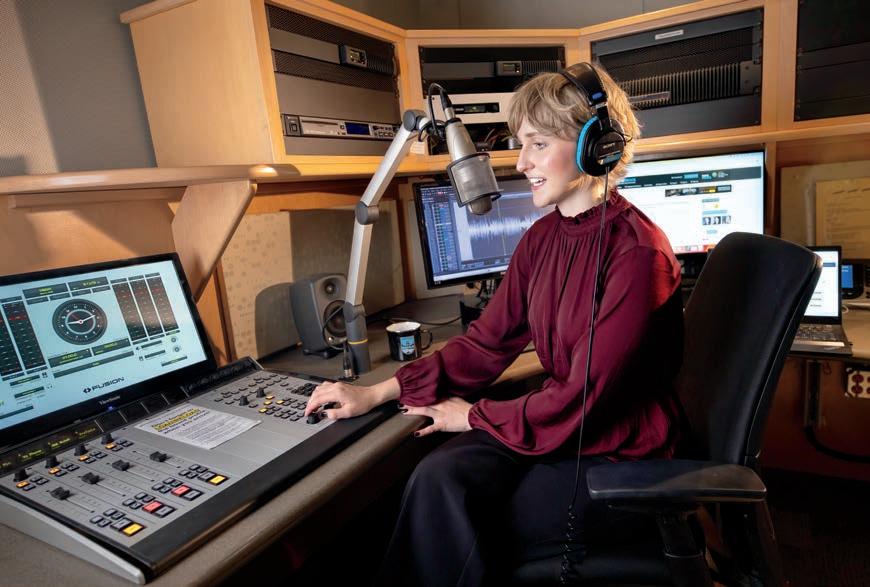
ANIKA BESST ’23
DIGITAL PRODUCER, MPR NEWS
Coon Rapids, Minn., native Anika Besst had her eye on an English degree when she became a Piper. “I wanted to be a teacher,” she recalled.
But once she arrived on campus, a fortuitous and quite wonderful sequence of events turned Besst’s plans in an entirely new direction.
She discovered the student newspaper, The Oracle, and everything changed.
“I fell in love with it,” Besst said. “I started taking journalism courses too, and the experience, both in class and in practice, confirmed the news media was where I wanted to be.”
Besst’s Hamline adventure included a group trip to Thailand led by Suda Ishida, Ph D, professor of Communication Studies, during which Besst reported on a conflict between the Thai government’s effort to establish a national park in Ob Khan
National Forest and the indigenous Karen people’s fight to preserve its livelihood and culture. Besst’s article was picked up by The Christian Science Monitor. “I still hear from people about it,” she said.
After graduating with majors in journalism and theatre arts, and a minor in English, Besst’s direction was clear. Her next stop turned out to be not far from Hamline. Today, she reports on higher education and the arts for the news division of Minnesota Public Radio (MPR) in downtown Saint Paul.
“I’m incredibly happy about where I am. MPR was my news source growing up,” Besst said. “I strive to create the best story and connection to community that I can.”
Besst credits her Hamline education for showing her the way and providing fellowship for the journey.
“You learn from every experience and come out better than when you went in,” she said. “A major part of my support network came from other Hamline students in journalism, English, and theater. I still connect with those friends today.”
ABOVE : Anika Besst ’23 assembles a story in an MPR News editing room.
THE ELEMENTS OF IMPACT
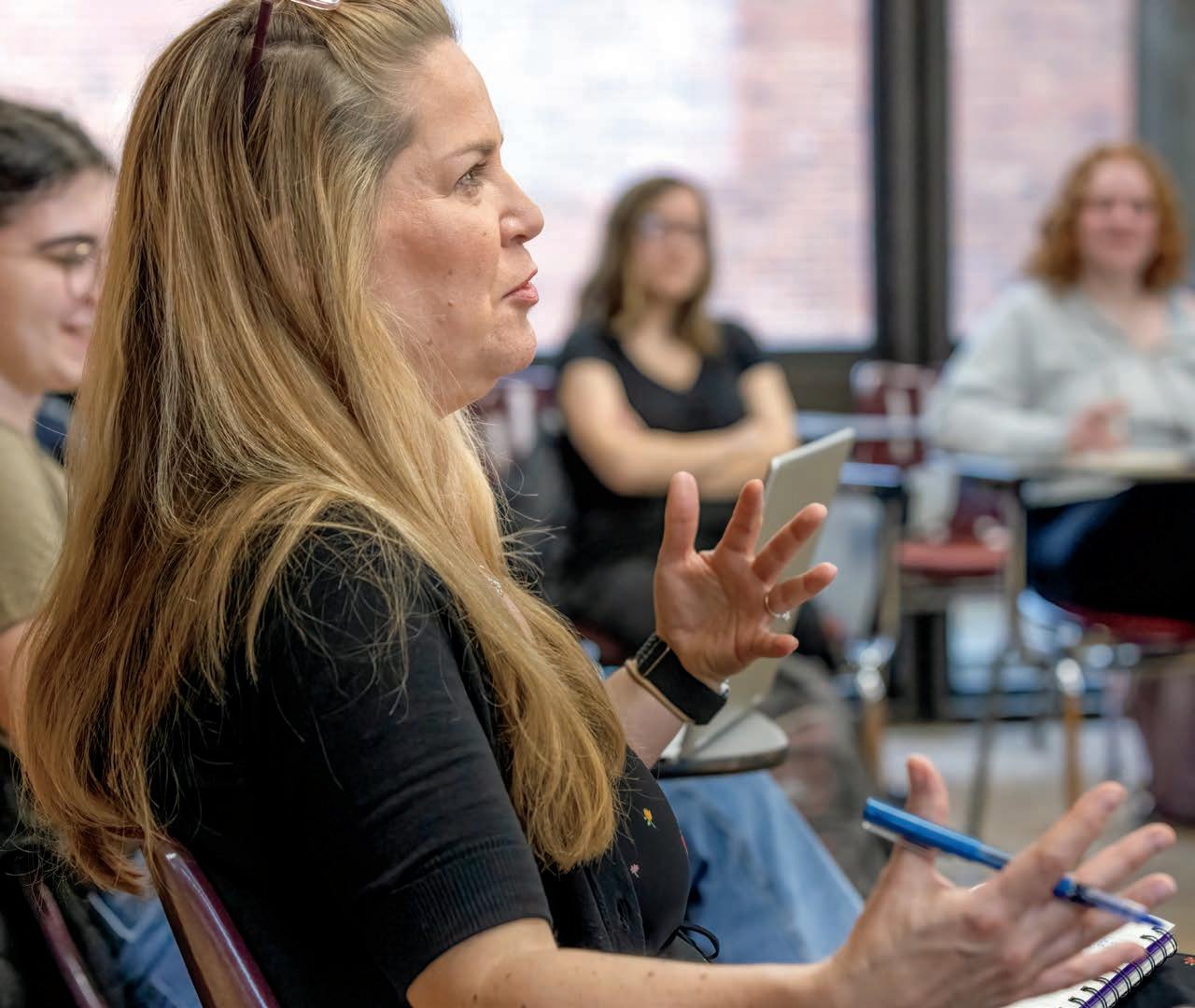
In today’s fast-paced world of higher education, faculty continually refine their teaching methods to support students with creativity and purpose. A particularly beneficial approach — high-impact pedagogy — is being integrated across the Hamline University curriculum with support from our dedicated faculty and a $2.3 million grant from the Title III Strengthening Institutions Program administered by the U.S. Department of Education.
ABOVE : Alina Oxendine, PhD, leads a classroom discussion. She also co-leads Hamline’s initiative to strengthen student outcomes through highimpact learning strategie s.
WRITTEN BY ST AFF
PHOTOS BY CT RYAN PHOTOGRAP HY
New Strategies for Student Success
HIGH-IMPACT PEDAGOGY WAS FIRST described in a 2008 report by experiential learning expert George D. Kuh, PhD, titled, “High-Impact Educational Practices: What They Are, Who Has Access to Them, and Why They Matter,” published by the American Association of Colleges & Universities. Kuh identified educational practices that result in greater engagement, deeper learning, and better outcomes — such as graduation — among students who participate, and especially so for students from historically underserved communities.
The high-impact practices (or HIPs) Kuh described typically show up in syllabi, course catalogs, and graduation requirements in the form of capstone courses or projects, collaborative assignments, first-year seminars, community-based learning, global learning, internships, research projects, and writing-intensives.
In 2013, Kuh and his coauthors expanded the potential application of HIPs by identifying eight common elements (see graphic below) that can be used as design principles to increase student engagement
and deep learning within a broader range of educational formats.
Greater Impact by Design
WHILE HAMLINE HAS LONG OFFERED high-impact experiences to students, the Title III grant enables the university to provide training and support for faculty to embed the eight elements into many more courses. Our goal is for 80 percent of courses to include high-impact components within five years.
“As a result, more Hamline students will have access to at least one high-impact experience and it’s likely that many students will participate in more than one during their college careers,” explained Alina Oxendine, Ph D, professor and department chair for Political Science and one of four leaders of Hamline’s HIP initiative.
Kuh recommends students have at least two HIPs during college and preferably one per year. According to Oxendine, the first year is a great time for students to dive into high-impact course work. “Students who are able to see the relevance of their studies early on in their college careers tend to be more motivated to stay in school and complete their degrees,” she said.
ESSENTIAL ELEMENTS OF HIGH-IMPACT EDUCATIONAL PRACTICES (HIPS)
Performance expectations for students are appropriately high
Significant investment of time and effort by students over an extended period
Interactions with faculty and peers about substantive matter s
JOINING OXENDINE IN LEADING HAMLINE’S HIP INITIATIVE ARE:
Sarah Greenman, PhD, associate professor of Criminal Justice and Forensic Science
Marcela Kostihova, PhD, professor of English
Irina Makarevitch, PhD, professor of Biology and associate provost for accreditation and compliance
OPPOSITE : Political science and public policy students collaborate on research as a high-impact practice.
(KUH ET AL, 2013) 1 2 3 4 5 6 7 8
Frequent, timely, and constructive feedback
Periodic, structured opportunities for students to reflect and integrate learning
Opportunities for students to discover real-world applications of learning
Experiences with diversity that expose students to unfamiliar people and circumstances
Public demonstration of competence
HIPs in Action
High-impact practices changed the student experience in several courses offered during the 2024–2025 academic year.
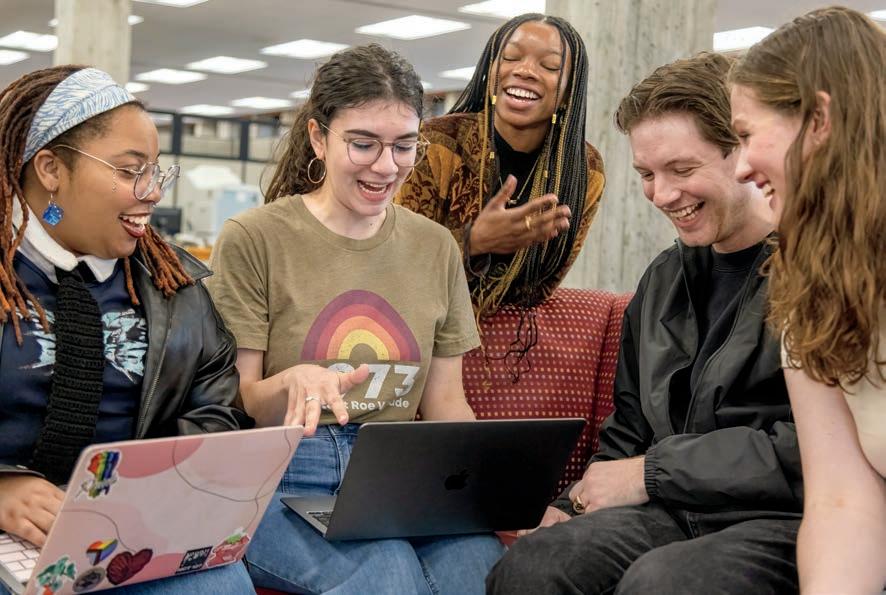
PPC 1420: TECHNICAL THEATRE
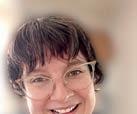
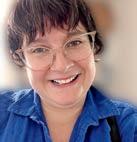
KIM LARTZ, MFA , visiting artist in Performance, Production, and Communit y
Kim Lartz ’s theatre course incorporated real-world applications, student reflections, high expectations, and collaborative assignments.
“I noticed the classroom community came together a lot faster than in other courses that don’t feature as much collaborative work,” Lartz said.
Student Caree Heard was energized by the experience of deeply engaging with her classmates and the material.
“The project work (in this class) has been amazing for me. I overcame challenges I was excited about, but also thought would be really difficult.
I’m glad I did it.”
PHIL 1980: DIGITAL ETHICS
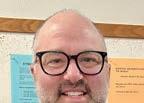
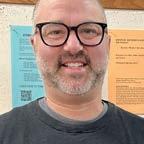
JOE SWENSON, PhD, senior lecturer in Philosophy
Joe Swenson, PhD, used collaborative learning and problem-solving projects to engage students in ethical questions that arise from the digital world. For example, they drafted public policy guidelines for future technology such as self-driving cars, superintelligent AI, and robot companions.
“High-impact practices turn the course into an engaged framework for learning the material and interacting with each other and the outside world,” Swenson said. He noted Digital Ethics is part of a new Ethics and Advocacy minor that uses applied techniques to help students develop skills for advancing social causes.
MORE COURSES
DESIGNED FOR IMPACT
HIST/CJFS 1980: POLICE, PRISONS AND THE PUBLIC
FACULTY: Susie Steinbach, PhD, professor and department chair, Histor y
Students from different academic disciplines and backgrounds work together in groups to research key historical moments of conflict around police and prisons.
EDU 1150: SCHOOLS & SOCIETY
FACULTY: Letitia Basford, PhD, professor, School of Education and Leadership
Students interview educators and students to capture diverse perspectives and share their findings during the annual Hamline Research Showcases.
BIOL 1520: INTEGRATED CONCEPTS IN BIOLOGY II
FACULTY: Leif Hembre, PhD, professor and department chair, Biolog y
Students complete a CourseBased Undergraduate Research Experience (CURE) about population genetics and evolution.
In Memoriam
We learned of the passing of the following alumni and friends between April 1, 2023, and March 31, 2025. Hamline University extends our deepest sympathy to their loved ones.
Marcia Agee
Kaye Lamb Aho ’73
Louis Ainsworth
Barbara Bean Akins ’46
Donald Allan MFA ’00
John Allison ’45
Albert Anderson ’54
Darlene Anderson ’55
Elaine Lehrke Anderson ’57
Peggy Schmidt Anderson ’57
Tom Anderson JD ’99
Thor Anderson
William Anderson ’94
Veryl Kruse Andre ’52
Erma Johnson Andrews ’53
Robert Armstrong ’64
Janet Grabau Austin ’55
James Babcock ’83
Naomi Baer MAED ’01
Olive Jean Bailey
Beverly Clobes Bakke ’56
Larry Bakken
Marlene Lindahl Baldwin ’58
Lloyd Ball ’58
Marcia Barnes Barkemeyer ’55
Rebecca Barnes Barry ’65
John Bartz ’58
Dexter Bastin JD ’77
Lorraine McCue Becker ’48
Jerry Behrens ’56
Roger Benjamin ’56
Walter Benjamin ’50
Colleen Benson ’84
Russell Berg JD ’78
Barbara Berglund JD ’84
Kenneth Bergwall ’73
Carol Bjorlie MFA ’01
Marjory Black
Sharon Schoen Black ’54
Dan Blackstad ’70
Marie Olin Blomquist ’54
James Blumberg JD ’04
Paul Boltz JD ’92
Peg Bosshardt ’54
Gloria Boye
George Bridgman ’61
Patricia Jensen Brockman ’59
Juliann Hanson Brovold ’57
Andrew Bryant JD ’92
Shirley Buerkle
David Burgoyne ’81
Harriet Misfeldt Busdicker ’56
Frank Capriotti JD ’78
Rita Lewis Carew ’57
Clara Jacobson Carlson ’54
Robert Carpenter ’52
Orwin Carter
Jane Smith Christianson ’67
Diane Christoph ’71
Stan Cichowski ’68
James Clarke ’62
Bud Clawson ’56
Jeanette Clonkey MALS ’92
Katherine Cole ’03
Reed Collins JD ’87
Bill Comfort ’79
Berniece Roth Cone ’53
Audrey Purcell Copeland ’54
Michael Dahlby JD ’05
Alma Dancer
Owen Daniels ’53
Ken Danielson ’55
Bernice Davenport
William DeMarco ’76
Thomas Deutschman ’58
Janice Vandermyde DeVries ’57
Craig DeWall ’75
Jack DeWalt JD ’02
Elizabeth Welbaum Dhennin
MALS ’93
Patrick Diamond ’82
Mary Jo Diedrich
Steven Dirks ’73
William Dixon JD ’76
Sandra Pikul Dolen ’69
Marion Hall Donahue ’58
Beverly Fillips Donner ’53
Frank Dreisbach
Kevin Duckler JD ’87
Marilyn Graber Dunphy ’54
Lorraine Henkel Dyal ’52
Matt Eggert MAT ’17
Mary Hart Ehlers ’64
Lucy Ellmann Einess ’54
Garnet Erickson
Harriet Markland Erickson ’48
Karen Dahl Erickson ’57
Lon Erickson JD ’82
Leon Ernster ’71
Melissa Fatchett ’89
Richard Fawcett ’55
Val White Felske ’73
Tom Field ’64
Martin Finkenstaedt MALS ’85
Patricia Finley ’89
Barbara Sales Flaherty ’62
Joan Holliday Fleming ’53
Joanne Posthumus Florin ’58
Laurence Foote ’61
Christopher Ford MALS ’90
Larry Fossler ’62
Arnold Fosteson ’49
Carol Reed Freeburg ’49
Charles Frey ’87 JD ’98
Al Frost ’67
Mary Rulifson Frye ’47
Bill Gamble ’60
Kevin Garaghty JD ’88
Gordon Genz ’59
Grant Gibbs
Patricia Morken Giorgini ’49
Crystal Strohschein Goldman MAT ’09
Richard Gongoll ’51
Thomas Gorman JD ’76
Rick Gough ’68
Lila Beese Graham ’44
Raynor Grande ’53
Pat Philipson Granoff ’53
Dianne Gray MALS ’96
James Gresham ’56
Mary Griggs
Michael Grigsby JD ’79
Tim Grogg JD ’78
Bruce Gross JD ’77
Gerald Gross ’63
Larry Gruenewald ’61
Verna Bentz Gruenhagen ’55
Leona Haering-Toussaint ’54
Bob Hagerman ’52
Harlyn Hagmann ’56
Kathy Handzlik MAED ’96
Dorothy Hanscom Madsen ’45
Joanne Paulson Hansen ’58
Bill Hardesty ’58
Adeline Kruger Hardin ’52
Karyn Hencier Harrington ’73
Amelia Selvig Hartman ’09
Barbara Whiting Harvey MALS ’89
Nancy Heine Hasse ’73
Jonnie Smith Hauswirth ’89
Anne Ritzenthaler Hawkins ’62
Russ Heagle ’62
Barbara Hedin MPA ’98
Bonnie Dunphy Hefestay ’49
Harriet Dahl Helgesen ’61
Deborah Helmke-Wodtke ’96
Sanford Hendrickson JD ’92
Michelle Haen Herrera ’80
Sheldon Hess ’61
Jackson Hickman ’55
David Hodgins ’64
Kate Hoff MPA ’96
Carol Askov Hoffman ’57
Gerald Hoke JD ’83
Rory Holcomb ’93
Nathan Holden JD ’97
Veryl Herdrich Holmes ’59
Virgil Holmes ’50
Curt Holmquist ’56
Pieter Hondius
Rhoda Tuttle Hooper ’56
Jerry Hudson
Ruby Hunt
Jeffrey Hurd JD ’92
Michael Hutchens JD ’85
Donald Ireland ’60
Ruth Janzen
Bryan Jensen ’63
Carol Johnson ’47
David Johnson ’70
Duane Johnson ’52
Karen Darlington Johnson ’63
Lee Johnson ’66
Ralph Johnson ’77
Stephen Johnson ’64
Susan Oehrke Johnson ’60
Steven Jones ’83
Sherry Nelson Jose ’92
Lyn Joyner ’49
Amy Leibbrand Juni ’51
Jim Kaehler ’54
Richard Keepers ’69
Peter Kelsey ’81
Majeed Khan ’56 LHD (hon.) ’98
Dennis Killian ’69
Ben King JD ’99
Jean Larson Kingstedt ’73
James Kinsel ’59
Judy Kinsey
Mary Klas
Dick Klaus ’50
Doug Knutson
Margaret Bowles Koch ’55
Les Kolesar
Terry Kos ’50
Brad Kragness JD ’82
Tony Krawetz ’03
Marilyn Johnson Kreutz ’55
Delton Krueger ’51
Joseph Krueger JD ’07
Steve Kruger ’93
Martin Kruse ’61
Virginia Kuechle ’80
Lillian Kuniyki ’54
Joyce Frennesen Kunz ’50
Claribel Lietz Lagomarsino ’53
James Larrabee ’73
Shirley Treat Larson ’53
George Latimer LLD (hon.) ’85
Nicholas Law ’58
Donald Le Blanc JD ’76
Judith Hanson Lewis ’65
Martin Lipske JD ’79
Stephanie Losching JD ’13
Tom Losness ’89
Earl Luaders JD ’79
Mary Proeschel Luce ’61
Duane Lund ’78
Ann Rykken Lynn ’61
Patricia Bushell Machgan ’74
Robert Madsen ’62
Marilyn Maguire
Mary Turner Maher ’74
Carole Mallam ’92
Karen Rodenkirchen Margolis ’62
Christine Marks MAED ’01
Marilyn Parrish Markus ’62
Daisi Martin MPA ’95
Edward Matchett JD ’84
Bernice Swenson Mattke ’48
Sarah Maurer Seuntjens JD ’06
Barbara Beck Max ’61
Timothy McCaffrey JD ’82
Hack McCall ’57
Joy Souther McCleary ’53
James McDermott
Denise Verbrugghen McFarland ’58
Jean Crouch McGiffin ’62
Frances Askdal McIntyre ’61
Terry McKimm ’68
Linda McNary
Lujean Peterson Meyer ’57
Helen Quick Mielke ’55
Helen Braun Miels ’54
Harold Miersma ’56
Darlene Miller
Samuel Miller MPA ’16
Sheryl Miller Miller ’69
Mary Houston Moen ’58
Judith Maki Mohar ’78
Harold Mordh ’77
Cal Mosley
Dan Moulton JD ’81
Joseph Muchlinski ’13
Steven Mueske MFA ’96
Kathleen Stroncek Mulally ’81
Deb Sundby Munson ’73
Mary Beth Engebretson
Mutchler ’65
Corrine Sabean Myers ’50
Caroline Matsuyama Nakashima ’47
Billie Needham
Edna Parvin Nenad ’53
Nancy Goff Ness ’58
Carol Barker Norris ’55
Carolyn Johnson Norsby ’57
Lavonne Echternach Nygaard ’58
Tod O’Connell JD ’76
Evann Jones Oelschlager ’46
Carol Nicholson Ohlsen ’42
Elizabeth Olson
Jerol Olson ’60
Jerre Stoebe Olson ’60
Polly Anderson Olson ’81
Cindy Werges Orn ’69
Sandra Ost ’59
John Ostenso ’62
John Otis ’57
Robert Page ’52
Jody Parker
Bruce Parrish ’63
Shirley Pearl
Evelyn Anderson Pecore ’53
Jim Peebles ’55
Steven Pellinen ’74
Shelby Penrod ’80
Gordon Peterson ’63
Joanne Peterson ’52
Marilynn Johnson Peterson ’60
Neva Stevens Pilgrim ’60
Sandra Taylor Pletcher
Kathleen Haining Pohlig ’70
Herbert Polachek ’52
Carol Harris Proctor ’49
William Putnam MALS ’00
Ray Quelland ’56
Beverly Randall ’88
George Redman ’63
Mary Ann Renner MAED ’03
Francis Rheinberger JD ’79
Mary McRae Richards ’51
Joan Jackson Ripple ’53
Joseph Roach JD ’94
David Robinson ’62
Fern Stumpf Rowland ’49
Robert Rupar
Beverly Biebighauser Sander ’54
Robert Sanft ’77
Donald Sankey ’66 MPA ’93
Joe Sanow JD ’13
Kathleen Stallard Sarles ’61
Patty Bratnober Saunders
Terrance Schlink
Teajai Schmidt MAED ’05
Pat Booth Schue ’53
Judy Wilkerson Schwartz ’61
Donald Schwartz ’58
Andy Selin MBA ’14
Chad Sellers ’01
Jim Senske ’60
Milton Sherburne ’60
Dawn Wade Sherrick ’71
Richard Simpson ’60
Michael Sindt JD ’91
Vivian Jackson Skoog ’43
Harry Sloth ’51
Louisa Stokes Smith ’60
Bruce Southward ’60
Harry Spindler ’53
George St. Germain ’61
John Stahmer ’04
Melissa Steinbauer ’75
Lee Stensland ’56
Ivan Stewart ’59
Brian Stofferahn JD ’85
Jo Ann Haddorf Strey ’54
Christopher Strickland ’66
Reno Stuedeman ’67
Diane Dodson Sundell ’71
Marjorie Clark Swenson ’48
Mike Swor ’71
Katherine Sylvester MAED ’05
Benita Feldhake Talbot ’51
Jan Talbot
Mary Teborg ’65
Diane Stocker Tenhoff ’57
Jane Thomas
Marc Thompson MFA ’06
Clayton Thorson ’48
Curtis Timm ’50
Annette DeCourcy Towler ’61
Joann Mueller Trampe ’59
Wesley Umpleby ’89
Wesley Van Guilder ’21
Peter Van Wyngeeren ’59
Diana Wahlstrom ’83
Bruce Walker ’75
John Walker ’55
William Walker JD ’76
Joy Wander MALS ’84
Jenn Emmerich Wantoch MPA ’09
Steven Webber-Peterson ’86
Alice Harrington Webster ’44
David Weidt JD ’79
Denny Wendell ’64
Carolyn Roberts Wendt ’65
Nick Wenner JD ’88
Jacqueline Sutliffe Weum ’60
Carol Whalen ’89
Jack Whereatt ’61
Jori Judge Whitehead ’77
Catherine Wick
Sherman Wilkens ’64
Prudence Phillips Wirtz ’67
Charles Witt ’69
Wayne Wolsey
Thomas Wood ’72
Deanna Sigrist Woodward ’80
Sybil Sanders Woutat ’58
Tsippi Wray
Arliss McBeath Young ’50
Brandon Young
Jean Williams Zivkovich ’78
John Zobel ’75 JD ’83
